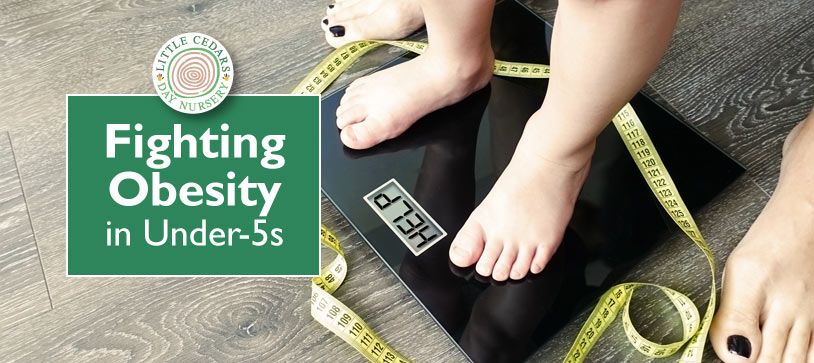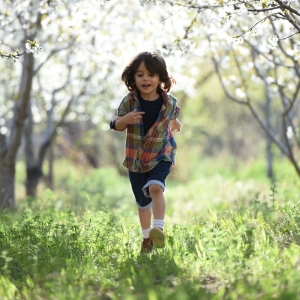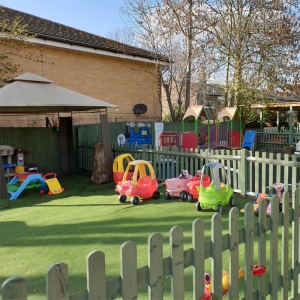
 Following on from our post last month about healthy eating for under-fives, we thought we’d take a look at what can be done when eating has got a bit out of control in that age group. Childhood obesity has become a hot topic in recent times. Even the UK Government has weighed in with various initiatives being launched in the fight against it.
Following on from our post last month about healthy eating for under-fives, we thought we’d take a look at what can be done when eating has got a bit out of control in that age group. Childhood obesity has become a hot topic in recent times. Even the UK Government has weighed in with various initiatives being launched in the fight against it.
The shocking statistics
Childhood obesity is important to address because the National statistics are quite shocking:
- Almost a third of children aged between 2 and 15 are either overweight or obese;
- Children are becoming obese at ever-younger ages;
- Once obese, children are remaining so for longer;
- Obesity doubles the risk of premature death;
- Once adulthood is reached, the chance of obese people developing Type 2 Diabetes is SEVEN times greater.
- Obese people suffer more from heart disease and depression.
The link between background and obesity
Statistics from studies show that children living in deprived areas are most at risk from developing weight problems. Low-income families are affected the worst and in fact the risk of obesity in five year olds in low-income families is twice that of their more affluent counterparts. By the time they reach the age of eleven, the risk increases to three times for the children from poorer backgrounds.
What can parents do to help?
 Last month we published an excellent article about healthy eating for under-fives. There is lots of useful information there about children eating the right food types, correct portion sizes and much more — take a look. However, remaining at a healthy weight is not only about eating a healthy diet.
Last month we published an excellent article about healthy eating for under-fives. There is lots of useful information there about children eating the right food types, correct portion sizes and much more — take a look. However, remaining at a healthy weight is not only about eating a healthy diet.
Parents can also help by ensuring that their children get regular exercise. This can be done through lifestyle choices that can be instilled into children from a very early age. For example, playing sports, gym exercise, walking, hiking and other physical activities. Indeed, research shows that building an active lifestyle that also involves healthy eating choices is one that can stick with the children even into adulthood.
The positive impact of exercise
Ensuring children get enough exercise is incredibly important in the fight against childhood, and indeed adult, obesity. After all, usually at the heart of obesity is a mismatch between the energy taken in as food/drink and the energy expended via physical activity.
 However, regular exercise has many other potential benefits aside from the management of physical weight and body mass. These include:
However, regular exercise has many other potential benefits aside from the management of physical weight and body mass. These include:
- Stronger muscles and bones;
- Natural fitness and agility;
- A better quality of sleep;
- Less likelihood of developing Type 2 Diabetes, heart disease, depression etc.;
- Evidence also suggests that academic performance is also likely to improve with regular exercise and involvement in sports etc.
Each year, the NHS spends more on the treatment of obesity and diabetes than it spends on the police, fire service and judicial system put together.
What is the Government doing to help fight childhood obesity?
 The Government launched its ten year ‘Plan for Action’ to fight childhood obesity back in 2017 and has continued to expand the scheme since then. This initiative was timely in light of the strain that obesity puts on the NHS, made only worse by the arrival of the coronavirus pandemic in 2020. As well as raising awareness of the issues surrounding childhood obesity, measures include things like the so-called ‘sugar tax’, where soft drinks are subject to a levy in order to persuade manufacturers to move towards healthier, reduced-sugar alternatives (a 20% reduction in sugar is a key aim). A similar campaign is being applied to sugar in foods, particularly those that appeal to children. For example, biscuits, confectionery, breakfast cereal, cakes, ice cream and suchlike. The aim is to eventually set caps on the amount of sugar and/or calories per 100g of product. Public Health England (‘PHE’) will monitor manufacturers’ responses to their campaigns and will apply additional “incentives” to improve should they be found wanting as time progresses.
The Government launched its ten year ‘Plan for Action’ to fight childhood obesity back in 2017 and has continued to expand the scheme since then. This initiative was timely in light of the strain that obesity puts on the NHS, made only worse by the arrival of the coronavirus pandemic in 2020. As well as raising awareness of the issues surrounding childhood obesity, measures include things like the so-called ‘sugar tax’, where soft drinks are subject to a levy in order to persuade manufacturers to move towards healthier, reduced-sugar alternatives (a 20% reduction in sugar is a key aim). A similar campaign is being applied to sugar in foods, particularly those that appeal to children. For example, biscuits, confectionery, breakfast cereal, cakes, ice cream and suchlike. The aim is to eventually set caps on the amount of sugar and/or calories per 100g of product. Public Health England (‘PHE’) will monitor manufacturers’ responses to their campaigns and will apply additional “incentives” to improve should they be found wanting as time progresses.
The Government’s anti-obesity initiative also aims to develop a ‘nutrient profile’ model for food, to make healthy options more accessible in the public sector and to provide support towards the cost of healthy meals for those who need it most. Along with this, at least one hour’s exercise per day is now given as an official guideline for children of primary school age and older. Schools and early years settings are also receiving Government support with greater coordination of high quality sport and physical activity programmes being rolled out. Guidelines have also been announced to discourage the display of unhealthy foods at checkouts and to avoid them being included in any buy-one-get-one-free deals in supermarkets. There is now also talk of a ban on the advertising of junk food on TV or online before 9pm. You can learn more about what the Government is doing to tackle childhood obesity on their website.
What nurseries and schools can do
 At Little Cedars Nursery in Streatham, we take physical development of children very seriously, so physical education is something that all children have available to them. All children are encouraged to be active, and interactive, so as to remain fit and to be able to hone their physical and motor skills. Indeed, this is a core element of the Early Years Foundation Stage (EYFS) framework that forms the basis of our curriculum.
At Little Cedars Nursery in Streatham, we take physical development of children very seriously, so physical education is something that all children have available to them. All children are encouraged to be active, and interactive, so as to remain fit and to be able to hone their physical and motor skills. Indeed, this is a core element of the Early Years Foundation Stage (EYFS) framework that forms the basis of our curriculum.
We have excellent playing and learning equipment including extensive outdoor play areas at the nursery. These give children ample opportunities for physical activity of various kinds — and they’re also great fun! As well as helping to keep children naturally fit and healthy, the physical activity also helps them to learn new skills including hand-eye coordination, balance and so on.
Healthy eating is, of course, also part of our DNA at the setting. All food is freshly prepared by our in-house chef and uses only high quality, fresh ingredients. We serve 3 well-balanced meals and 2 healthy snacks to children attending all day, along with fresh water that’s available any time.
Are you looking for nursery places in or around Streatham?
If you’re looking for a suitable nursery for your baby or toddler in or around London SW16, we would love to hear from you. Little Cedars is a nursery and pre-school in Aldrington Road, Streatham, so is very convenient if you need high quality childcare close to Streatham, Streatham Park, Tooting Bec, Tooting Common, Furzedown and Balham. We offer childcare for babies aged 3 months right up to pre-school children aged 5. Call 020 8677 9675 for further information, email us here or book a visit here. We look forward to hearing from you!
This article is for general guidance only. Always seek professional medical advice if you are concerned about your baby or child’s health and wellbeing.

